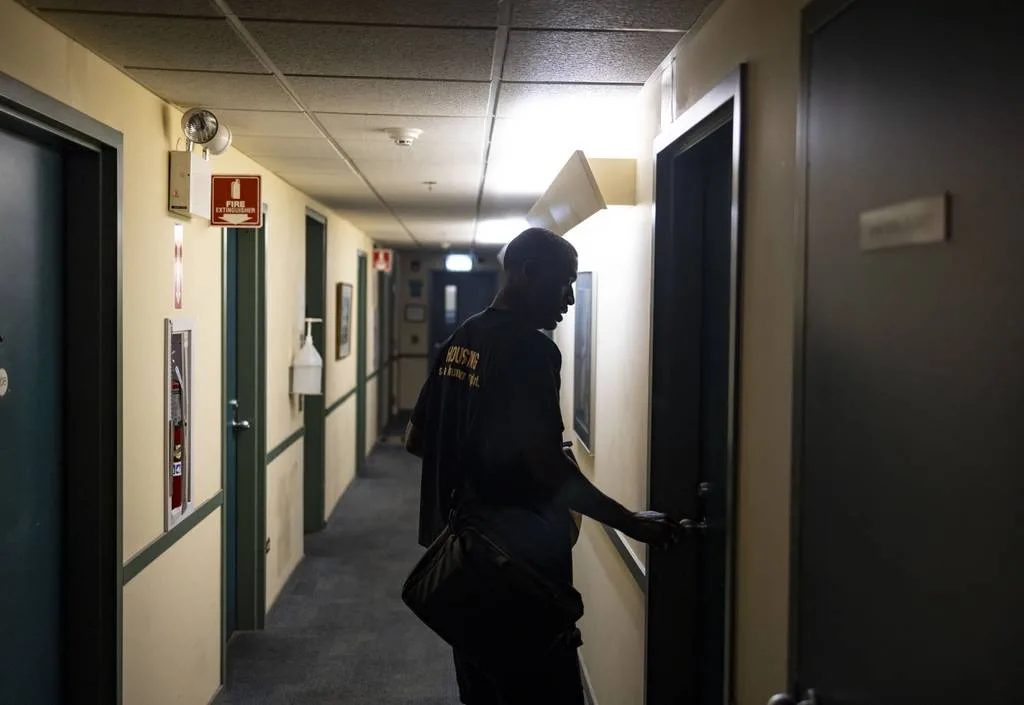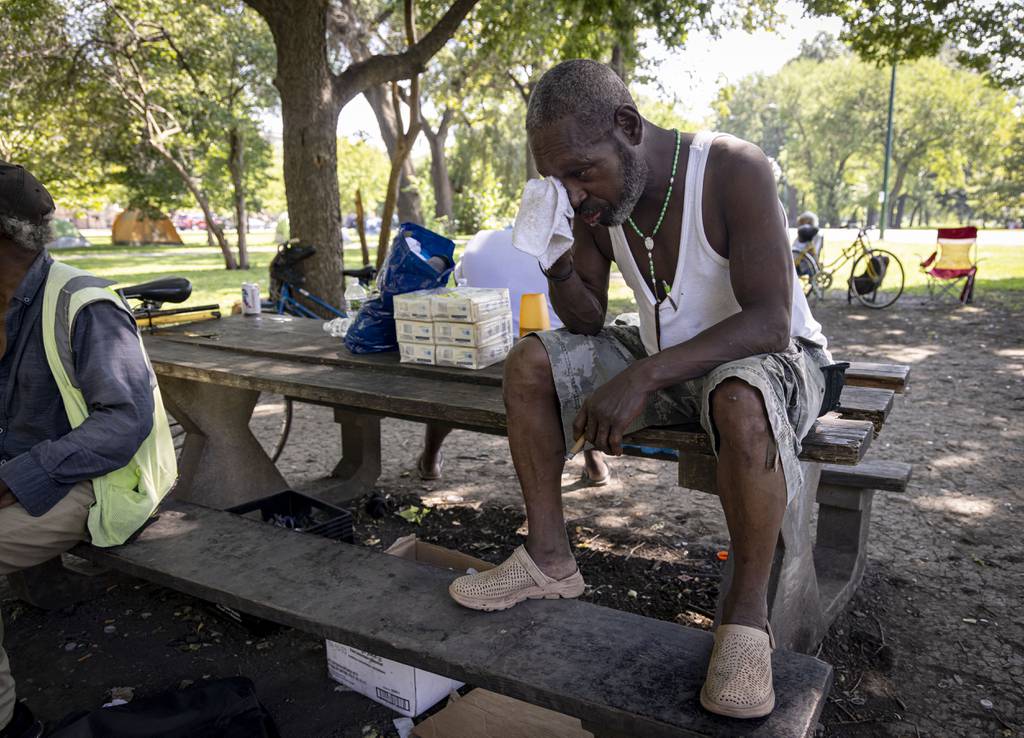The number of people experiencing homelessness in Chicago increased between 2020 and 2021, according to a new estimate from Chicago Coalition for the Homeless.
The group finds that 68,440 people experienced homelessness in 2021, a 2,829 increase from the previous year, according to the coalition’s report published Thursday. The research shows shifts in the way people experienced homelessness, citing that 7,985 more people were staying on the street or in shelters as opposed to those temporarily staying with others compared with 2020 data.
The majority of people experiencing homelessness are people of color, with African American Chicagoans ending up homeless more because of racist economic, educational and housing practices, according to the coalition. The coalition finds that Latino Chicagoans are more likely to experience homelessness by doubling up with others. Most families who are experiencing homelessness, as well as many unaccompanied youth — those ages 24 and younger — are temporarily staying with others too.
The new estimate comes as Chicago Coalition for the Homeless is steering its Bring Chicago Home plan — a proposal to raise the real estate transfer tax on properties worth $1 million or more to pool additional funds to fight homelessness — through a City Council meeting and discussions with Mayor Brandon Johnson.
“The estimate of people experiencing homelessness is rising, and there’s a solution on the table,” said Sam Paler-Ponce, lead author of the report and manager of research and outreach at Chicago Coalition for the Homeless.
Bring Chicago Home was one of Mayor Brandon Johnson’s 100-day campaign promises. The measure will not be passed this year, but the mayor claims progress has been made because City Council held an initial hearing this summer. It also emerged Tuesday that he’s signed off on adjustments to the real estate tax increase before it goes to a voter referendum next year.
[ Chicago to work with Biden administration on plan to fight homelessness ]
Brian Rodgers, 49, is currently experiencing homelessness and is involved in the Bring Chicago Home campaign. Since January, he has been in a reentry program that provides long-term housing and support services for formerly incarcerated individuals. As Rodgers has bounced in and out the criminal justice system, he’s lived on the street, in cars, abandoned buildings and shelters and doubled up with others over the past 15 years.
Rodgers said being homeless in years past has been a “very unstable and rocky situation” for him, causing his mind to be “all over the place.” He said he wants to see a dedicated funding stream to help individuals like himself.
“We have the potential for this problem to get bigger if nothing gets done,” Rodgers said. “We need the funds to get the housing.”

The coalition’s report does not capture Chicago’s recent influx of thousands of migrants from Central and South America who are seeking asylum in the U.S., many of whom are experiencing homelessness, as they are sleeping on police station floors, in makeshift shelters and on the streets.
Paler-Ponce said next year’s estimate will likely increase because it will be reflective of the group of asylum-seekers who are accessing homeless services.
The coalition’s annual estimate is delayed due to the timing of data releases from the city’s Homeless Management Information System, which counts people living on the streets and in shelters, as well as the U.S. Census Bureau, which counts those living doubled up.
The new estimate is still much greater than the city’s most recent count for homeless, as the city uses U.S. Department of Housing and Urban Development methodology which does not consider people who are temporarily staying with others to be homeless.
In 2023, for its one-night count, the city found that 6,139 residents were experiencing homelessness, a significant rise over last year’s 3,875 estimate. Of those individuals, 2,196 are asylum-seekers in 2023. The city count reveals there was an increase in families and individuals utilizing shelters and a decrease in the number of people experiencing unsheltered homelessness compared to last year’s count.




City data analyzed in the Chicago Coalition for the Homeless report shows the number of people accessing homeless services jumping from 27,913 in 2021 to 36,878 in 2022.
Rodgers said housing is the basic foundation that creates stability for people.
“And once you get that in order, then you can begin to seek out the other things that you need,” Rodgers said. “Because if you don’t have a place to stay and you are worried about a place to stay, then you don’t have the chance to put all of your energy into whatever else that you need to do because that thought is always in your mind, ‘Where am I going to sleep tonight?’ ”
Chicago Tribune’s Alice Yin, A.D. Quig and Gregory Royal Pratt contributed.


